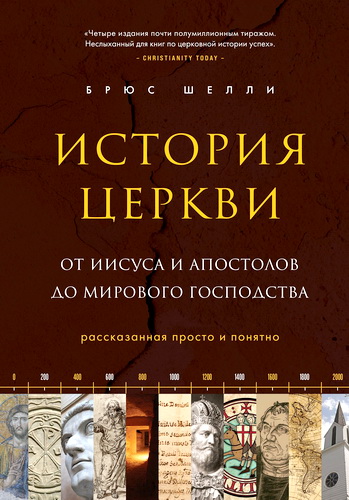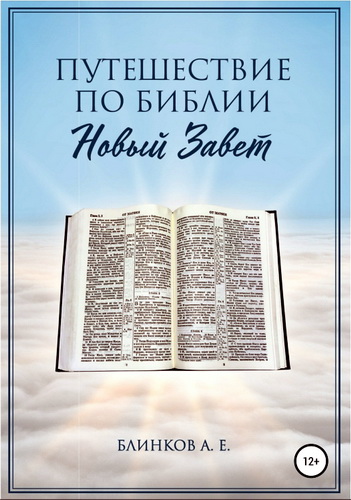
Bar - Lost in Translation
Eitan Bar - Lost in Translation: 15 Hebrew Words to Transform Your Christian Faith
Dr. Bar's New Top Trending Book 3. – Eitan Bar, 2023. – 118 p.
ISBN 979-8857242452
While reading the Hebrew Scriptures in translation can certainly offer significant insights, there is a particular depth of understanding that can only be reached by engaging with the text in its original language. For those who can read Hebrew, this presents a remarkable opportunity to delve deeper into their spiritual heritage and enrich their understanding of the Scriptures, enhancing both personal faith and scholarly pursuits. The cultural, linguistic, poetic, and theological insights that the Hebrew language offers are invaluable tools in the process of biblical hermeneutics and interpretation.
The vocabulary in Hebrew is rather concise, comprising roughly 8,000 words. However, this perceived limitation actually highlights the beauty of Biblical Hebrew, as it means each Hebrew word carries multiple meanings, often layered in complexity. This characteristic gives the language its unique depth. Consequently, translation from Hebrew to another language presents significant challenges. Translators must select a single interpretation, which may not entirely reflect the true connotation of the words. This not only often results in losing the richness of the original word but also risks obscuring the intended meaning behind that term.
Reading the Hebrew Bible is a complex task, but even more so for those who are not fluent in the Hebrew language. Instead, they must rely on translations to access this sacred text. While translations are invaluable resources, they inevitably involve compromises and may not always capture the full meaning, nuance, and richness of the original Hebrew text. As a result, readers who are not proficient in Hebrew may miss out on certain aspects of the text that have been either mistranslated or are simply impossible to convey accurately through translation.
The Hebrew language is intrinsically tied to the culture and context in which the Bible was written. Hebrew is a Semitic language deeply rooted in the history and beliefs of the Jewish people.
Semitic languages, including Hebrew, Arabic, and Aramaic, are part of the larger Afro-Asiatic language family. These languages have distinct features that set them apart from languages like English, which belongs to the Germanic branch of the Indo-European language family. For example, Semitic languages have grammatical gender, with nouns, adjectives, pronouns, and verbs agreeing in gender. In Hebrew and Arabic, for example, there are masculine and feminine genders, while English has lost grammatical gender in nouns and adjectives and uses gender-neutral language for most cases except pronouns (he, she, they).
* * *
WORSHIP
Hebrew: SHACHAH
In biblical times, the terms “worship” and "prayer" had a broader meaning than they do today. Most types of prayer and worship were not solely about communicating words to God; they also involved actions. However, our modern understanding of the words "worship" and "pray" has evolved to mean "talking and singing to God." For Israel, worship of God always involved sacrificing something, which taught the people of Israel important lessons. For example, to help one another, and if you want something, to be prepared to give in return.
In English translations of the Bible, several distinct Hebrew words have been translated into "worship," with the specific term varying depending on the version of the Bible. This can be seen in a variety of verses, including Job 1:20, Genesis 22:5, Exodus 33:10, Deuteronomy 26:10, Isaiah 46:6, Psalm 29:2, and many others.
The Hebrew word SHACHAH simply means "to bow." In other words, showing respect, telling others they are important and that you honor them. In ancient times, when people from various nations approached their gods to worship and pray, they would always bring a gift with them. A sacrifice. This offering could be in the form of animal or agricultural produce. They never came empty-handed, believing that by giving something to the divine, they could invite blessings and favor in return. These prayers and offerings were often made before important events such as harvests, births, or weddings as a way to seek divine protection and blessings. The underlying principle was that if you wanted to ask something of your gods, you needed to give something in return. The God of Israel was no different in this respect. Do you wish to meet and ask of Him something? Great! But lunch is on you, so don't forget to prepare and bring a nice "meal" with you when you come to the altar.
Throughout the Old Testament, we often see God rejecting Israel's attempts to worship Him and their offerings (Jeremiah 6:20; Isaiah 1:11–15; Amos 5:21–23). However, even before the formation of Israel, in the story of Cain and Abel, we understand that one cannot merely offer something to God; it must also be of high quality. Offering leftovers is not the same as offering the best you have.
The story of Cain and Abel is where we actually first meet sacrifices in the Bible.1 These brothers did not yet have any "Law" they were following. Like many others in the Ancient Near East, they offered sacrifices to "stay on the good side" of God. You have probably heard various traditions about why God accepted Abel's offering but not Cain's. The most prominent tradition is that Abel's offering was accepted because it involved the death of an animal, while Cain's was rejected because no blood was shed. Here is an example from John MacArthur:
We see that Abel did what God required...He brought the right sacrifice that was required by God...It was better because it was blood, and it was better because it was required as a sacrifice for sin.2
The first problem with MacArthur’s interpretation is the anachronism fallacy.3 God did not require blood as a sacrifice for sin until much later, in the time of Moses. Moreover, the text offers no textual support for MacArthur's view. This sacrifice was not about blood and had nothing to do with forgiving sins, both ideas were foreign to Cain and Abel. The second problem is that later in Leviticus chapter two, we see that God does, in fact, accept bloodless agricultural offerings with no issues. If the children of Israel were allowed to offer agricultural produce, why would God be so upset when Cain did so? The third problem is that the New Testament's mention of the infamous story never suggested that bloodless sacrifice was the reason for God's rejection of Cain's offering.4
According to the text, the difference is that while Cain "brought some fruit," Abel, on the other hand, brought his very best, "fat portions from some of the firstborns." Fat firstborns? This is the "grade five Wagyu beef" of ancient times. The difference the text points out to the reader is not in the type of offering (blood vs. bloodless) but in the quality of it ("fat" and "firstborn" vs. just "some"). The quality of the sacrifice is also something God will later emphasize in the Law to Israel.5 So, in contrast with Cain, Abel brought his very best. At the same time, Cain probably saw some bananas starting to blacken and decided they shouldn't go to waste.
Notice verse two: "Abel kept flocks, and Cain worked the soil." Cain brought fruit because he was a farmer. It is no sin to be a farmer. But as a farmer, he, too, could have picked the better portion of his fruits. But he didn't. Therefore, God's issue was not with blood but with the quality of the offering he was gifted with.
Modern Worship
The New Testament brought about a significant change, teaching a new group of Jewish believers in Jesus that when worshiping God, they no longer needed to bring the sacrifice to God. Instead, He desired for them to bring the sacrifice to the poor and needy, the sick and broken, the widows and orphans, the imprisoned, and the sinners. In this way, they worshiped Him (Matthew 25:34-40).
But then, with the destruction of the Second Temple, Jews who did not believe in Jesus could no longer offer sacrifices. The Jewish Pharisees, who opposed the corrupt priesthood, seized this opportunity to finally take over by reshaping Israel's religious practices. They introduced a revolutionary "new" idea, teaching the children of Israel that since they could not bring a sacrifice to God because the temple was gone, they could now bring it to the Pharisees in the form of coins of gold and simply repeat a couple of prayers out loud.6
As a result, Christians observed Jews worshiping with words alone, mistakenly thinking that no actions were ever involved (coins of gold do not "moo" or "baa" loudly on the streets). Gradually, Christianity also began to adopt this comfortable idea that worship is about words and is entirely disconnected from actions. This is why, in modern times, we associate "revival" and "worship" with music and songs. But a "worship night" should not just be about Christians going to an amplified concert with cool spotlights, whereby the crowd joins in singing words of praise. Instead, a worship night should be an evening whereby Christians go out to the streets to feed the hungry and cover the poor with a blanket. Perhaps a better name for an evening of Christian songs should be "praise night."
There is an error in modern-day Christianity- thinking that in Christ, believers are exempt from making sacrifices. We don't; we just redirect the sacrifices to offer them to society's outcasts instead. When we pray before a meal, giving thanks to God, we should also ask ourselves if there is someone, perhaps even in our own neighborhood, who could benefit from more than just our prayers. Instead of only praying for the poor and hungry, we can also feed them.
In summary, worshiping God should be done with your best and with the utmost generosity. For instance, did you notice a poor woman sitting outside McDonald's with her child when you entered to celebrate with your son? Don't merely save your doggy bag for her; buy her a meal. This is one way to truly worship God!
1. No, I don't believe Genesis 3:21 has anything to do with offering. I explain this at length in my book, 'The "Gospel" of Divine Abuse,' Part I, Chapter 3.2. John MacArthur, "Abel: A Primitive Faith," Oct 25, 2009.3. An anachronism is a chronological inconsistency of misplacing people, events, objects, language terms, and customs in the wrong periods. The common types of anachronism in theology are verbal expressions or philosophical ideas placed outside their proper temporal domain/time.4. Matthew 23:35; Hebrews 12:245. Leviticus 1:3; 2:1; 3:1; 22:21-22.6. For farther explanation see my book "The New Kings of Israel: A Theological Survey and Critique of Rabbinic Judaism."





Комментарии
Пока нет комментариев. Будьте первым!